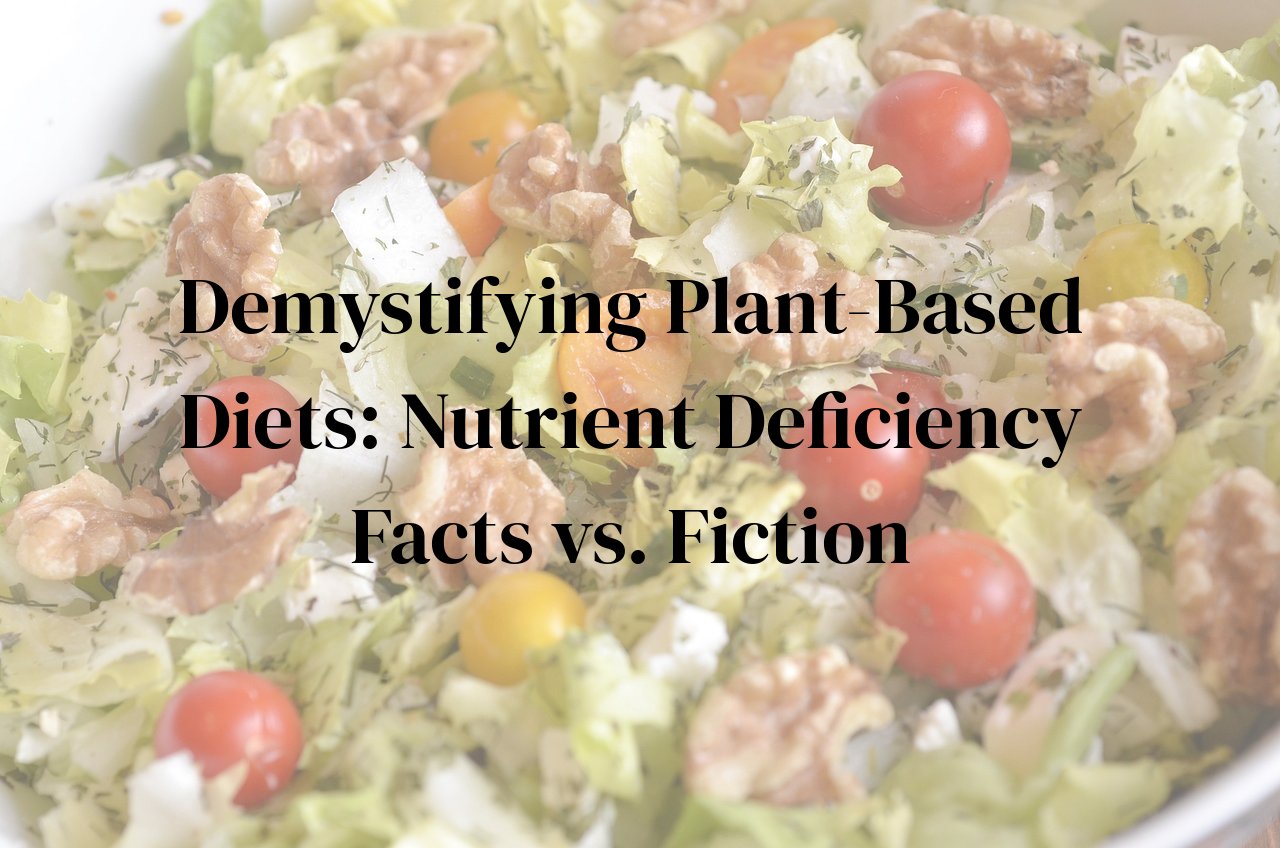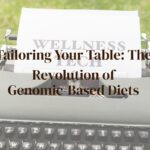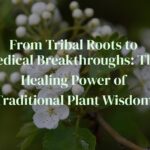
Plant-based diets have been gaining widespread popularity, thanks to their numerous health benefits and environmental impact. However, one common concern that often arises is the potential for nutrient deficiencies. This blog post aims to unravel the complexities surrounding nutrient intake in plant-based diets and clear up the myths associated with it.
By reading this post, you’ll gain an understanding of what nutrients you need to focus on, how to incorporate them into your plant-based diet, and why you don’t need to worry as much as you might think. Whether you’re a seasoned plant-based eater, someone considering the switch, or just curious, this comprehensive guide is your ticket to a well-rounded diet.
Table of Contents
The Basics: What Is a Plant-Based Diet?
A plant-based diet primarily focuses on consuming foods derived from plants. This includes not just fruits and vegetables, but also nuts, seeds, oils, whole grains, legumes, and beans. Essentially, if it grows from the ground, it’s fair game. Plant-based diets are often confused with vegan diets, but there is a subtle difference. While veganism strictly avoids all animal products, plant-based diets may still include small amounts of animal products like dairy or fish, depending on the individual’s preferences.
One of the core principles of a plant-based diet is its flexibility. Unlike rigid diet plans, a plant-based approach allows for a range of eating habits and can be customized to suit personal health goals and lifestyle choices. The concept is to minimize processed foods and emphasize natural, nutrient-rich alternatives. For instance, instead of refined sugars and flours, plant-based dieters would opt for whole grains and natural sweeteners like honey or maple syrup.
There’s also a strong emphasis on whole foods, which are foods that are either unprocessed or minimally processed, so they retain their natural nutrients. Whole foods are the cornerstone of a plant-based diet. Think of foods like fresh fruits, vegetables, whole grains, and legumes. Here, simplicity is key. The less processed a food item is, the better it fits into this dietary regime.
From a personal perspective, transitioning to a plant-based diet can feel like a significant lifestyle change. It took me a few months to fully accept and adapt to this new way of eating. I remember the initial weeks, feeling unsure about what to cook and how to balance my meals. Over time, however, I found joy in exploring farmers’ markets, experimenting with new recipes, and discovering a plethora of plant-based options that made my transition smoother and enjoyable. My kitchen turned into a colorful haven of fresh produce and vibrant meals.
Health benefits are one of the most compelling reasons individuals choose a plant-based diet. Research consistently shows that plant-based diets are associated with lower risks of chronic diseases such as heart disease, diabetes, and certain cancers. Additionally, many find that they have more energy and better digestive health. Since focusing on plant-based foods, I have personally noticed increased energy levels, clearer skin, and an overall improvement in my well-being. This experience confirmed for me the positive impact and the potential of a plant-based lifestyle.
However, it’s important to approach it with balance and awareness. Not all plant-based foods are inherently healthy. Processed plant products, highly refined grains, and certain plant oils still pose health risks if consumed in excess. The key is to strive for a balanced intake of whole, unprocessed foods to truly reap the benefits of a plant-based diet. Being mindful of this has helped me foster a diet that is not only nutritious but also satisfying and sustainable.
Commonly Feared Nutrient Deficiencies
Transitioning to a plant-based diet often raises concerns about nutrient deficiencies. Among the commonly feared deficiencies are proteins, vitamin B12, iron, calcium, omega-3 fatty acids, and zinc. Let’s delve deeper into each of these and dispel some myths around them.
Protein: One of the first questions I usually get asked is ‘Where do you get your protein?’ Surprisingly, protein is abundant in the plant kingdom. Legumes, lentils, tofu, tempeh, quinoa, and even vegetables like broccoli and spinach contain decent amounts of protein. The key here is variety; by mixing different sources, you can easily meet or exceed your protein requirements. I even found myself building more muscle mass after I diversified my plant-based protein sources.
Vitamin B12: This nutrient is primarily found in animal products, and its deficiency is a legitimate concern for those on a strictly plant-based diet. Fortified foods like plant-based milk, cereals, and nutritional yeast are excellent sources. Also, a B12 supplement can be a simple and effective way to ensure you’re meeting your needs. Personally, I found taking a B12 supplement once a week works perfectly for me.
Iron: Plant-based sources of iron, such as lentils, chickpeas, and spinach, provide what is known as non-heme iron. Enhancing iron absorption can be as easy as pairing these foods with vitamin C-rich fruits and vegetables. Over time, I noticed the addition of a glass of orange juice or a serving of bell pepper made a significant difference in maintaining my energy levels.
Calcium: While dairy is a well-known source of calcium, so are fortified plant-based milks, tofu, almonds, and leafy greens like kale and collard greens. My bone density actually improved after I included a variety of these calcium-rich plant foods in my diet, debunking the myth that only dairy provides sufficient calcium.
Omega-3 Fatty Acids: Many people believe that fish are the only good source of omega-3s, but there are plenty of plant-based alternatives. Flaxseeds, chia seeds, walnuts, and hemp seeds are excellent sources of ALA, a type of omega-3 fatty acid. I particularly enjoy adding ground flaxseed to my morning smoothies for an omega-3 boost.
Zinc: Necessary for the immune system, zinc can also be found in a variety of plant foods including beans, lentils, seeds, and nuts. I remember initially being worried about zinc, but after incorporating more pumpkin seeds and chickpeas into my meals, my concerns were eased.
In summary, while fears around nutrient deficiencies in a plant-based diet are understandable, they’re often based on misconceptions. With mindful choices and a bit of education, it’s entirely possible to meet all your nutritional requirements through plant-based sources. It’s a journey that becomes easier and more rewarding with time.
Sources Of Vital Nutrients In Plant-Based Foods
One of the biggest myths about plant-based diets is the assumption that they’re nutrient-deficient, especially in areas like protein, iron, calcium, vitamin B12, omega-3 fatty acids, and vitamin D. Yet, it turns out, our green friends can cover these nutritional bases quite thoroughly, provided we know what to look for and how to incorporate them effectively into our meals. Let me walk you through the often surprising sources of these crucial nutrients in the plant kingdom.
Protein – Contrary to popular belief, protein is quite abundant in the plant world. Foods like lentils, chickpeas, tofu, tempeh, and quinoa are all rich in protein. During my transition to a plant-based diet, I discovered that these foods didn’t just meet my protein needs but also introduced me to a world of new flavors. For example, tempeh, a fermented soybean product originally from Indonesia, has become a staple in my meals due to its high protein content and unique nutty flavor.
Iron – Many people worry about iron deficiency on a plant-based diet, but did you know that leafy greens like spinach and kale, lentils, chickpeas, and seeds like pumpkin and hemp are loaded with iron? Including vitamin C-rich foods in your diet, like bell peppers or strawberries, can enhance iron absorption. Over time, I’ve grown fond of adding a splash of lemon juice to my lentil soup for an extra vitamin C boost, which not only helps with iron absorption but also enhances the flavor.
Calcium – When it comes to calcium, dairy isn’t the only gig in town. Fortified plant milks, tofu, almonds, tahini, and dark leafy greens like collard greens and broccoli are fantastic sources. One of my favorite discoveries was almond butter, which has a rich texture and works wonderfully in smoothies or even as a simple snack with apple slices. Plus, fortified plant milks are not just rich in calcium; they often come with added vitamins like D and B12.
Vitamin B12 – This nutrient isn’t naturally present in most plant foods, but fear not. Fortified foods, such as cereals and plant-based milks, are excellent sources. Nutritional yeast is another treasure in the plant-based dieter’s arsenal. It has a cheesy flavor and is packed with vitamin B12. I often sprinkle it on popcorn or stir it into pasta sauces to give them a savory kick and ensure I’m getting my daily dose of B12.
Omega-3 Fatty Acids – Flaxseeds, chia seeds, walnuts, and hemp seeds are some of the richest plant-based sources of omega-3s. I usually add a tablespoon of ground flaxseeds to my morning smoothie or sprinkle chia seeds over my oatmeal. It’s a simple way to secure these essential fats. During cold weather, I often snack on walnuts which not only provide omega-3s but also satisfy those occasional munchies with a good crunch.
Vitamin D – While it’s true that the sun is a primary source of vitamin D, you can find it in fortified plant-based foods like plant milks and orange juice. Incorporating these into your daily diet can help bridge the gap, especially during the winter months. I make it a point to enjoy a chilled glass of fortified orange juice with my breakfast, kicking off my day with a burst of vitamin D.
The vast array of plant-based options means that with a little planning and creativity, you can meet your nutritional needs without ever feeling deprived. Trust me, as someone who has embraced this lifestyle, it’s not just about the nutrients but also about the joy of exploring new foods and flavors.
Personal Tips and Experiences
Switching to a plant-based diet isn’t just a matter of changing what’s on your plate; it’s an evolution of lifestyle, habits, and even your social interactions. I’ve gone through this transformative journey myself, and here are some personal tips and experiences that might make your transition easier and more enriching.
Start Gradually: Instead of jumping into the deep end, consider making gradual changes. I started by incorporating one plant-based meal a day. This allowed my palate to adjust to new flavors and textures while providing ample time to research nutrient sources.
Get Creative in the Kitchen: One of the biggest challenges can be battling monotony. I began to explore different global cuisines – Indian, Mediterranean, Mexican – each offering a myriad of plant-based options bursting with flavors. Don’t hesitate to mix things up with unfamiliar ingredients. Experimentation truly keeps the diet exciting.
Listen to Your Body: There were days when I felt unusually fatigued or had cravings. It was crucial to listen to my body and assess nutritional gaps. Simple solutions like adding iron-rich spinach or vitamin C-packed bell peppers made a significant difference.
Plan Your Meals: Initially, I found meal planning to be a lifesaver. Having pre-prepared meals and snacks on hand reduced the temptation of reverting to old eating habits. Apps and cookbooks became invaluable resources.
Community Support: Transitioning alone can feel like an uphill battle. I joined local plant-based groups and online forums where I could share experiences, seek advice, and find inspiration. This community support was instrumental in keeping me motivated.
Consultation with a Nutritionist: One of my wisest decisions was consulting a nutritionist specialized in plant-based diets. Personalized advice ensured I was meeting all my nutritional requirements. This also dispelled many myths I had about nutrient deficiencies.
Stay Open-Minded: Lastly, maintaining an open mind was crucial. Not everything I tried was a success, but each failure was a step towards finding what worked best for me. Embracing this journey with curiosity rather than rigidity made the process far more enjoyable.
Scientific Insights and Studies Supporting Plant-Based Diets
The scientific community has been increasingly vocal about the myriad benefits of plant-based diets. Numerous studies have emerged, each providing compelling evidence that supports shifting to plant-based eating for better health outcomes. Here are some pivotal insights backed by rigorous research.
First and foremost, longitudinal studies show that plant-based diets can lead to a longer lifespan. According to research published in JAMA Internal Medicine, individuals adhering to vegetarian and vegan diets had lower risks of developing chronic diseases and significantly lower mortality rates. The study attributes these outcomes to reduced saturated fats and increased fiber intake, both prevalent in plant-based foods.
In another enlightening study, the EPIC-Oxford cohort, spanning over a decade, analyzed the dietary habits of more than 65,000 people. The findings revealed that those who followed plant-based diets had lower risks of ischemic heart disease and certain types of cancers. These results were mainly due to higher antioxidant levels and lower cholesterol in plant-eaters.
From personal experience, I can affirm the mental clarity and energy boost I’ve received since transitioning to a plant-based diet. It aligns well with a study from the Nutrients journal, which found that plant-based dieters often experience improved mental health and mood stability, likely due to higher consumption of folate, magnesium, and phytochemicals.
Moreover, plant-based diets have shown potential in managing and even reversing Type 2 diabetes. Research published in the Journal of Geriatric Cardiology highlighted that a diet rich in whole grains, legumes, fruits, and vegetables can effectively lower Hemoglobin A1C levels and improve insulin sensitivity. Researchers suggest that these benefits arise from the high fiber content and low glycemic index of plant-based foods.
The gut microbiome, an emerging area of health science, also benefits significantly from plant-based eating. Studies, such as those published in Frontiers in Nutrition, have discovered that plant-based diets foster a diverse and stable gut microbiome. This leads to better digestion and enhanced immune function. I can personally vouch for improved digestion and fewer instances of bloating since embracing more plants in my diet.
Additionally, environmental motivations often complement health benefits. A study in The Lancet Planetary Health stressed that not only are plant-based diets better for individual health, but they also have the potential to drastically reduce environmental impacts. By lessening reliance on animal agriculture, we reduce greenhouse gas emissions, deforestation, and water use.
In summary, while addressing nutrient deficiencies concerns is crucial, numerous scientific studies reinforce the benefits of a well-balanced plant-based diet. These advantages span from improved longevity and mental health to better chronic disease management and environmental sustainability. As a personal advocate, I’ve witnessed these positive changes first-hand, making the tapestry of evidence even more compelling.
Conclusion
In conclusion, while nutrient deficiencies are a common concern, they are not as prevalent as many believe. By making informed choices and paying attention to your diet, a plant-based lifestyle can be both nutritious and fulfilling. Let’s bust those myths and embrace a healthier, more balanced way of living!



